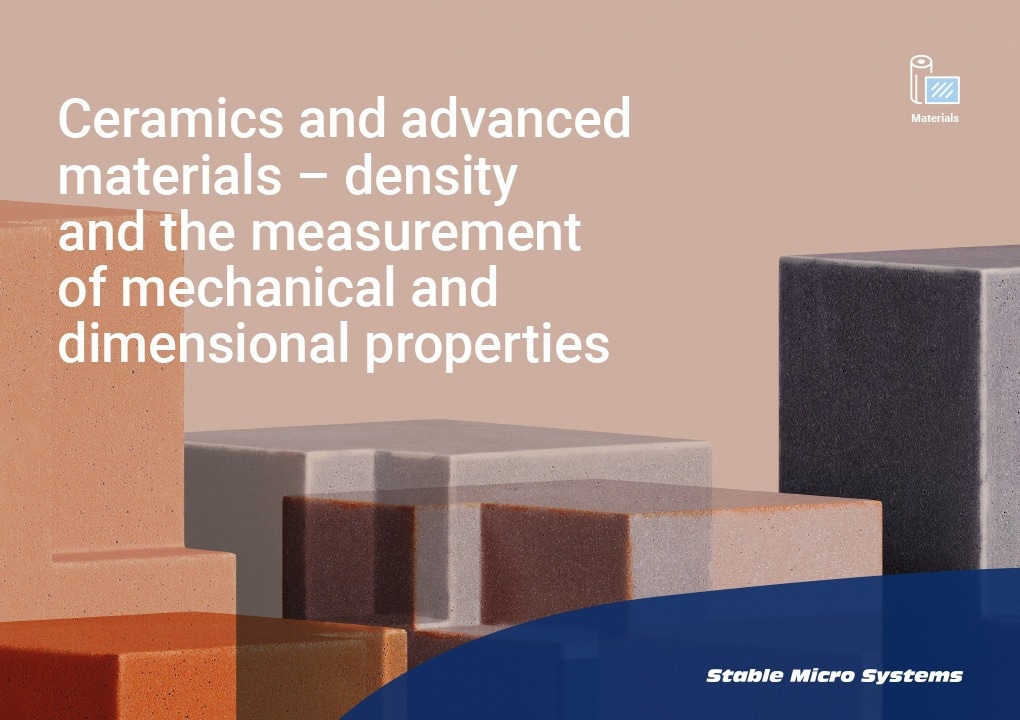
Image Credit: Stable Micro Systems
The mechanical and dimensional properties of ceramics are fundamental to their application in a wide variety of industries. Whether for structural applications, electronics, or cutting tools, these properties are closely tied to a ceramic material's performance, longevity, and reliability. Here's why measuring these properties is crucial:
- Structural integrity: Mechanical properties such as tensile strength, compressive strength, and flexural strength provide insights into how a ceramic material will behave under various stress conditions. This is vital for structural applications where ceramics must bear loads or resist breakage.
- Wear resistance: In applications like cutting tools or surfaces exposed to constant friction, understanding a ceramic's wear resistance can predict its lifespan and performance.
- Thermal stability: Dimensional stability at varying temperatures informs how ceramics might change shape, expand, or contract when exposed to heat. This is especially relevant in aerospace, automotive, or electronics applications.
- Predicting failure: By understanding properties like fracture toughness, manufacturers can anticipate how ceramics might fail under stress, which is crucial for safety-critical applications.
- Precision engineering: For electronics or intricate machinery components, precise dimensions are essential. Dimensional measurements ensure components fit perfectly and perform as intended.
- Process optimisation: Knowing the mechanical and dimensional properties helps in refining manufacturing processes, leading to better yield, less wastage, and improved product quality.
- Quality control: Consistent properties are vital for producing reliable products. Regularly measuring these properties ensures consistency across batches.
- Innovative design: Understanding a ceramic's properties can lead to novel applications or designs that capitalise on those specific characteristics.
- Compatibility: In systems where ceramics are used alongside other materials, their mechanical and dimensional properties need to be compatible with those of the other materials to ensure the overall system functions seamlessly.
- Cost-efficiency: By understanding these properties, manufacturers can choose the right type of ceramic material for specific applications, leading to more cost-effective solutions.
Given the diverse applications of ceramics, from turbine blades to dental implants, ensuring that their mechanical and dimensional properties are accurately measured and understood is foundational for safety, functionality, and innovation. Stable Micro Systems instruments are here to help.